
Advertisement

![]() by Sao Nova Europa » Fri May 14, 2021 5:03 pm
by Sao Nova Europa » Fri May 14, 2021 5:03 pm

![]() by Chinniwana » Fri May 14, 2021 7:28 pm
by Chinniwana » Fri May 14, 2021 7:28 pm

![]() by Mirum » Fri May 14, 2021 8:34 pm
by Mirum » Fri May 14, 2021 8:34 pm
Chinniwana wrote:Now I know this is Low Fantasy, but how low is the Fantasy? Like are Dwarves, Elves, or other Humanoids possible? Or is it only Humans?

![]() by Alozia » Sat May 15, 2021 12:30 am
by Alozia » Sat May 15, 2021 12:30 am
Herador wrote:Herador wrote:Definitely tagging. Only have access to my phone for a while though, so the app is going to take a bit.
What is the max size for a houses main holding? I'd like to go for a merchant house that also dabbles in mercenary work. I was thinking the city would be a good size, a thousand or so people, a good sized castle, a few small fortified manors (three if I recall correctly), and a fairly extensive port. Nothing like a metropolis but not small. If that's too much I can definitely tone it down, but I'd like to use portions of an old app since I can't use my PC.
Also, I'd like the house to be vassals of another player if possible. I think it would make it easier for me to roleplay since "nation" RP's aren't something I'm great at.
One more question: what is technology like in setting? Like, is plate common or is mail and gambeson the best armor around? Are crossbows around? Have Poleaxes come into use? That sort of thing.
Sao Nova Europa wrote:What is the religion of the empire?
(Ironic; me when I see Gord)Gordano and Lysandus wrote:I swear you are the LOTF Mariah sometimes
Peoples shara wrote: "Die nasty!!111"

![]() by Miekzhemy » Sat May 15, 2021 4:54 am
by Miekzhemy » Sat May 15, 2021 4:54 am


![]() by Great Confederacy of Commonwealth States » Sat May 15, 2021 6:10 am
by Great Confederacy of Commonwealth States » Sat May 15, 2021 6:10 am
Great Confederacy of Commonwealth States wrote:A work in progress, but feedback is appreciated!
House Name: House Mteru
House Seat: Vandolenne Court
House Head: Rauthar Munger III Mteru, theoretically as viceroy of the Riverine, though his grandfather Munger Adja II Mteruv as coroy still has de facto control over the house.
House Values: House Mteruv sees itself as the keeper of old knowledge and the guardians of history. Some say they dwell on the past, but they see history as the key to the future. A very fortunate concidence, or perhaps not coincidental, seeing as they produced three of the greatest emperors of the Early Empire, a fact which they are extremely proud of.
House Motto: 'Giants on giants' shoulders stand' (Mteruva Mtaruvadine Teru)
House Members:House History: The House Mteru traces its legendary origins back to the very foundation of the Empire. According to legend, Mteru the First was a tribal warlord of the Riverine region, who joined the service of the First Emperor and acted as his bodyguard, since he was tallest of all men. At his life's end, with Mteru having gained so much experience and knowledge about governing from his patron, the emperor adopted him as his only son, and conferred the empire upon him. What followed was the reign of the Three Glorious emperors: Mteru, his son Munger, and Munger's brother Rauthar. They fortified the borders of the empire and even expanded them, while also implementing just laws that spurred economic growth. They, especially Munger and Rauthar, are known as the Philosopher Kings, with their reign being seen as peaceful and just.
- Munger Adja II, coroy (former viceroy) of the Riverine; the ageing patriarch of House Mteruv instantly recognisable by his long, grey beard and his piercing green eyes, a man known and revered for his strict discipline and unrivalled knowledge of imperial history. Approaching eighty, he is not as energetic as he used to be, but he is still far more active than he lets on to the outside world.
- Rauthar Munger III, viceroy of the Riverine. Grandson of Munger Adja II, and his direct successor, as his mother Alleria died giving birth to him. Munger Adja loved Alleria, his favourite child, and sees Rauthar as a lesser copy of her, which has led to a harsh upbringing. Due to his advanced age, Munger Adja abdicated his viceroyalty in favour of Rauthar, to give him some hands-on experience, but Rauthar is definitely still standing in his grandfather's shadow. Also, since he is now viceroy, Rauthar is eligible to claim the imperial throne, and as a man in his late twenties he would make far longer use of it than his ageing grandfather, though he is very much seen as an extension of his grandfather in matters political.
- Angellos [OTHER HOUSE NAME HERE], father of Rauthar and widow of Alleria. A clever, keen and strong man, but with little ambition. A caring but somewhat absent father figure for Rauthar, and the complete opposite of his overbearing father-in-law. He was picked by the latter exactly because he did not have ambitions to supplant the Mteruv, which was an important quality in the eyes of Munger Adja.
- Suvi [OTHER HOUSE NAME HERE], wife of Rauthar. At 24, she is younger than Rauthar by a few years, and their marriage has been tainted by the fact that she remains childless. Suvi and Rauthar have a strong bond of friendship, but very little romantic feelings for one another, and the combination of that has very much limited their attempts to become pregnant. Childless candidates are preferred for the imperial throne, however, since the fear of an imperial dynasty establishing itself still lingers in the minds of many noble houses, which is why Munger Adja II has not made a stink about it so far, since the survival of his house is ensured through other branches.
- Adja Mteru, the genius cousin of Rauthar and a few years his senior. Adja lives a quiet life, acting as steward for the Riverine and thus in charge of the bookkeeping. He has a knack for numbers and is cool and level-headed, but detests both the spotlights and the responsibility that is demanded of rulers. His responsibilities are clearly laid out, and he very rarely has to make decisions that are not cost-saving in nature. But he acts as an advisor to Rauthar, and a milder one than Munger Adja.
- Yetuvera Mteru, the aunt of Rauthar, mother of Mteru, and captain of the Mausoleons; the viceroyal guard and knighthood of the Riverine. A martial figure, her combat prowess is looked down upon by her father, yet she is known for not giving a toss about what her father thinks. She has acted as a surrogate mother for Rauthar, though she was only slightly less strict than her father had been for her. Discipline was important, of course. Yet, Rauthar learnt horseback riding and fighting with various weapons from her, quite peculiar since martial prowess was before looked down upon by the Mteruv.
This myth, which is equal parts truth and embellishment, is what the Mteru base their prestige on. They were the ones that built the empire and placed its foundations, only to be shunned afterwards. The Mteruv still believe that they have a birthright to the throne, even though after the age of the Three Good Emperors, they have hardly ever held the imperial crown. Still, they believe the elections are a farce, and hardly ever take part in the elections because of it. While they find their prestige in the era of the Three Emperors, they current power flows from the fact that they control the Vandolenne Court, and with it, the Great Mausoleum where the Three Emperors are entombed. In the shadow of the Great Mausoleum stands the Imperial Archive, a library of historical documents which tells the history of most of the empire. This knowledge is what has kept the Mteru relevant all these years; each of their viceroys has spent days, weeks, years studying in its marble halls. It is a right and a burden to stand on the shoulders of the giants who came before.
From their seat of power in the Riverine, Munger Adja II, former viceroy of the Riverine, eyes the capital jealously. After a long and storied life, he longs for nothing more than to get the imperial throne back into the hands of his family. Permanently, if possible. It is his life's work, and he shall stop at nothing to achieve it. With the death of the emperor, he will undertake the journey to the east with his grandson in tow, and will use whatever means deemed necessary to achieve his birthright.
Character Name: Rauthar Munger III
Character Gender: Male
Character Age: 28
Character Role: Viceroy of the Riverine, Head of House Mteru
Character Appearance:
(Image)
Character Traits: Rauthar is a clever lad, but not the cleverest. He is kind, but not the kindest. He is, generally, riddled with anxieties about himself, and lacks confidence, which is the main thing holding him back. He feels that he needs to excel in all fields, though that is of course not at all necessary. This keeps him back from actually using his many moderate skills, which in turn means he lacks experience in most fields. His grandfather has never allowed him to make many decisions at all, which at this point in his life is really holding him back.
Biography:
Location Name: Vandolenne Court
Location Type: City, capital of the Riverine
Location Description: A city on the Riverine Fork, built around the Mausoleat Hill. The Mausoleum itself is of ancient architecture, but the city surrounding it has more modern architecture. It's a half-way point for river boats traveling up the two rivers, but since taverns are banned inside the city walls, small towns have arisen around the rivers to accomodate travellers.
Location History: Vandolenne was historically never the capital of the Riverine, at least not under the Three Emperors. It was Munger the First who constructed it for his father, but eventually it was expanded to include two additional tombs for himself and his brother Rauthar. Vandolenne was supposed to be far away from the King's Keep and from the rest of the Riverine, just visited by pilgrims and watching solemly over those traveling the Two Rivers. Yet, over time, a pilgrim town developed around, and the pilgrim town attracted those seeking shelter from river-going. Eventually, the city got a city council and came to rival the old seaside capital of Havonne. Since Havonne had very little historical significance, eventually the viceroys of the Riverine moved their capital north to Vandolenne, establishing a royal archive there. The royal archive gained the title 'imperial' after the assumption of Adja II as emperor, one of the few Mteruv to ascend to that position after the reign of the Three Emperors. There, the House Mteru ossified into their current positions as keepers of history, more content with contemplation in the tombs of their long-dead forefathers than with the goings-on of the present day. It was perhaps an unwise choice, since Havonne has since grown on the back of ocean trade and its wealthy salt flats, and is about twice the size of Vandolenne. What is more, where Vandolenne is ruled by tradition, Havonne is ruled on the basis of pragmatism. The power of the Five Mayors continues to grow in Havonne, creating an uneasy power imbalance between the nominally powerful and prestigious House of Mteru, and the economically powerful Five Mayors.
Location: The northernmost point of the island in the fork of the westernmost river.
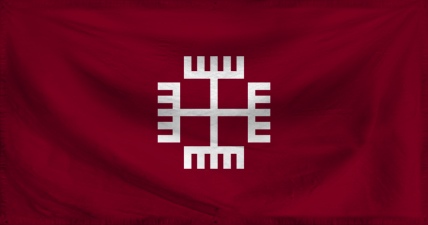
![]() by Ormata » Sat May 15, 2021 6:41 am
by Ormata » Sat May 15, 2021 6:41 am
House Name: Eisen
House Seat: N/A
House Head: Friso Eisen
House Values: Courage, Cunning, Ruthlessness
House Motto: Blood Forged of Iron, Hearts Forged of Steel
House Members:Friso Eisen (34)
House History:The eldest Eisen, born to Queen Rotraud of Otocea, Friso is by any account the leader of the bunch. A tall, well-built man of impressive stature, his is the boisterous magnetism of a soldier rather than the brooding or quiet directive of most noble heads. While smart, he is not a man to dismiss the opinions of others more learned in a matter merely by virtue of their standing or position; an expert is an expert. For these aspects, Friso is not well-loved in any court of the world, though he does not bother himself with such thoughts or inclinations. In his mind, time is better spent on the field or discussing business with one’s employer.
Gebhard Eisen (31)Born to a maid of the Lord Ubaldo, Gebhard’s natural curiosity has lent him an unnerving reputation among most circles. Never one to shy away from matters of the body, his efforts to expand his own knowledge led to animal dissections at age twelve, human cadaver dissections at age seventeen, and through such morbid fascinations as how the human body does tick Gebhard is known to be one of the very few counted among numbers of House Eisen to be a capable field apothecary. While his understanding of such matters is stunted by the lack of a proper education, it would be fortunate indeed that the man became literate by the aid of a disgraced priest in the Schwertbruders’ number, and he has voraciously sought after any books on nearly any subject. As a result of this, the man has a good enough understanding of siege engines to direct the construction of crude catapults and covered rams.
Alwin Eisen (21)The son of a merchant in Náča, Alwin’s the youngest son, the most lean, and above most other things the son who sees himself to have the most to prove. A vicious man, his anger is kept in check only by the knowledge that there will always be a proper place to release that anger in far more constructive manners. Taught both by the most ruthless men among the Schwertbruders and by Gebhard, he takes delight in torturing individuals for information, in systematically taking apart a body without outright killing it. Nearly without a conscience, it can be said that Alwin loves felines without pause or exception, taking care of half a dozen of the beasts with a glee nearly childlike in nature. The man is otherwise not talkative, lingering in the back of any conversation to watch for an opportunity to prove himself to his brothers as useful.
Eike Eisen (28)Born to the butcher of Hošín, Eike might be said to have been predestined to work in a bloody business. A fiery spirit, she found a glee in the shield-wall, in the charge and heat of battle, and the lust found thereafter. Driven to action, the woman roamed with little to no pause, running and running and running each and every time with more energy than most others would ever dare suspect within her muscles. Eike bathed in it, basked in the warm glow of the battle and everything that came after, a tigress of few compunctions. While she lacks the moral debates of what others might think which Friso holds close, the woman is not so heartless as Alwin and lives by a simple code; she harms none who don’t work against her or her brothers. Honest to the core, she prefers to not speak at all if the alternative is a lie, and views trust between Schwertbruders as something which eclipses all other things.
Ottilia Eisen (17)Born to the a seamstress in far-off, small Truříčí, little Ottilia was unique among the children of Thijmen by virtue that she did not keep with the baggage train, the prostitutes and wretches. No, instead she took to the small forges, sharpening stones, and the ferriers, the metal-workers of the Schwertbruders. It was a near-magical thing, the ability to transform rocks and work into blades and armor, into things so small and intricate as chain-mail and jewelry, and she loved it entirely. Ottilia took every opportunity she could to learn and discover, to find more of the secret of steel, and that hunger for knowledge was near-ravenous. Eventually, she took to working the ore and metal alongside them, acting as an apprentice. Even now, she’s still essentially an apprentice, though by no means is that hunger diminished. Ottilia does take some time from her life to talk to her siblings, mainly Gebhard and Eike; she does not much enjoy talking to those outside the family or the Schwertbruders, mainly by the simple fact that she neither knows them nor trusts them.
When a band of foreign raiders known as the Rote Söhne, the Red Sons, wrecked one of their raiding vessels along the coastline long ago it was said that the Sons chose not to continue raiding on their own but to be hired out by the nearest lord to do the very same raiding. Already the title was known by the local lords, their brutality well established by the raids performed on coastal townships and monasteries, and such was that same brutality that the Rote Söhne were said to dye their clothes red so as to not be stained by blood. How true this is depends on the interpreter of history’s accounts. In any case, they pillaged still, raided still, but at the order of lords and against the enemies of such lords while being under their protection. For a long period, the Rote Söhne operated in this manner, taking a variety of jobs from protection to helping gather taxes from poor villages and everything in between, and eventually it became known that the Sons would take any job that paid well, do any task no matter how dirty. They were mercenaries, after all, and their creed was simply that the job was the job, the contract sacrosanct, and once signed their bond was given. The culmination of the Red Sons came when they took to the sacking of Hono. During that time, three noble Houses of the kingdom had forces committed to the siege of the large city due to their pervasive habit of coastal raiding.
As the other House forces besieged the walls, the Red Sons instead went back to their routes. With a trading vessel loaded down by their finest warriors close to the shore, sailing slow, they attracted a warship of Hono. Expecting an easy victory, the vessel drew alongside the trader, boarding her before the trap was sprung. Howling here and there, they slaughtered the boarders by virtue of numbers before enthusiastically counter-boarding the warship. It was bloody and hard, true, but something which ended with the Rote Söhne owning a vessel of Hono. Clearing her decks of blood and donning armor which vaguely resembled those they had just recently killed, the Red Sons sailed their prize under close pursuit by two vessels of one of the besieging Houses. The gates, recognizing their own, allowed the Red Sons inside. They quickly drew into the crowd of warriors, some taking to the walls while others took to the guardhouse. After a half-hearted attack by the men outside, they retired for the day and the Red Sons got to work. While most others slept, they cut the throats of most guards upon the wall, slowly opening the gate for the Red Sons still outside before locking the doors and setting fire to the town’s various barracks. The Houses awoke to see Hono already burning, to see the Red Sons already swarming within the walls, and they took to the action with a glee.
Following the burning of Hono, the Rote Söhne were both extremely wealthy and extremely few as most of their number died in the battle. As the other three Houses had been forced into financial disrepute by the raiding prior, living off their coffers during the siege, their armies had fallen prey to large numbers of desertion. When the Rote Söhne took most of Hono’s wealth with them along with a fat paycheck from one of the Houses for their services, the pillage promised to those armies simply disappeared and many more deserted in droves. The Red Sons’ response to this would be, on the march back to their haunts at the crossroads of the Empire, to hire every professional soldier with gear they might find. The sudden influx of differing cultures and their methods of swearing loyalty lead to the Rote Söhne being known by another term: Schwertbruders, Sword Brothers. The following economic misery of those destitute Houses led to two collapsing, merchant houses hiring the Sword Brothers to reclaim whatever wealth they might find in exchange for a set wage. They took to it, though with less gusto than the sacking of Hono by virtue of those lands being the homelands of their newfound brothers. The Schwertbruders continued in this manner for some three decades more, roaming about and selling their blades to a variety of noble houses for a variety of jobs. Some of these were mercantile, the guarding of caravans in bandit-ridden country, though the mercenaries would eventually find the haunts of those bandits and extract tribute from them in exchange for not massacring the camp, while others were bloody endeavors full of loot. Nevertheless, whichever it was, they would complete the task.
Their course changed when Thijmen Eisen took control of the Schwertbruders. A shrewd man, he took the mercenary group far east and away from the Empire’s borders in order to participate in a great war between two neighboring powers. He hired his men out to the Kingdom of Otocea in a campaign against the Duchy of Zonivka. They took part in many a battle, becoming likened to vultures by the Otoceans for their habit of looting the dead once the fighting was over, and Thijmen only enhanced their reputation by two virtues. The first was his harkening back to the days of the Rote Söhne, the Red Sons, having his men wear all red cloth and paint their shields red, for Zonivka had been the subject of their raids in the past and still remembered the bloody raiders from the sea. The second was his use of light siege weaponry even in standard combat, heavy crossbows to punch holes into enemy lines. They bloodied the enemy left and right, a hammer on the field, and it would become well known that the nature of the Schwertbruders was not one to break ranks. When the capital city of Zonivka, Pityn, finally came under siege the Sword Brothers breached the walls by the sewer system. They encountered two bears, released to hamper them, and summarily doused the beasts in oil, set them alight, and pushed onwards through the filth to exit out among the city streets as the armies of Otoceans broke through the front gate and the crumbling remains of the eastern wall. The summary massacre and looting, characteristic of any siege, would lead to the Schwertbruders being known in the eastern lands as castle breakers, siege masters, something Thijmen took to heart. He worked alongside the Queen Rotraud of Otocea and several such siege engineers, helping to strengthen several key fortresses in that realm by a back-and-forth dialogue between himself and the engineers. Such was his reputation that rumor had it his eldest son, Friso, would be born during that period of close relations with the Queen.
Eventually, however, his contract with the Queen ran dry when his men began to lack a good amount of the high pay they had become so accustomed to. Thijmen took his men and son back west, carving a path of contracts and deaths along his way. Every few years or so, an especially good job came along and he took it, settling down for a while as his men enjoyed the land, as he enjoyed the contract. It was more often than not security, acting as a large force to protect against bandits or to buffer border forces in order to make a particularly aggressive neighboring lord reconsider his choices. Each time, another child came from it, though none would be of such royal lineage as the first. One came from a butcher who caught Thijmen’s eye, another from a maid of the lord he served at the time, another the son of a merchant, and the last the daughter of a seamstress. These he would more often than not leave with his baggage train and the camp followers whenever sergeants weren’t giving some lesson or another in the arts of combat, and they grew up not in the company of a father but in among the whores and moneylenders. Thijmen Eisen was a good leader, but sadly never a good father.
When they arrived back in the Empire, Thijmen began to finally die from a long, hard life of the saddle, blade, and sexual disease, and his son Friso slowly took the reins by virtue of a nearly magnetic personality. He rallied about a discordant, troublesome family. It would only be a few years after such that Thijmen died, fittingly in the working room of a working woman, and that the newfound House Eisen came under contract of the House Wassenburg. Since then their relationship with that house has only grown.
Character Name: Friso Eisen
Character Gender: Male
Character Age: 34
Character Role: Head of House Eisen
Character Appearance:Standing at an impressive 6’9”, Friso is a moutain of a man with more than enough musculature to dwarf most others about him. Tanned skin from decades under the sun lends the fiery-haired man a bronzed look, something he takes simply for granted. That same red hair is kept long, draping itself over the shoulders in a great mane, while his own beard is allowed to grow relatively long and full. It is easy to note the number of scars the head of House Eisen wears proudly, many along the hands and arms. What few concessions to jewelry are also easily spotted, those being a two pairs of simple gold earrings, really just rings, and a necklace made of a silver chain, a cloth-of-gold ribbon, and an opaque gem of indistinguishable coloration.
Character Traits:+ Delegator’s Sense
Biography:The man knows when to talk and when to not, when to take matters out of his own hands and place into others best suited and when to keep hold of such things too important to leave to others. Friso can recognize his own failings when they appear, his own lack of information on certain subjects, and does not shy away from offered help should any such help make itself known.
+ Natural CharismaFriso speaks the soldier’s talk and swaggers just like one; he finds little difficulty being a likeable young man in a room, especially one he’s used to such as the tavern or inn. Not at all the brooding or sophisticated noble, the man takes a good joy in jokes and jabs. An ability to read the people about him helps avoid most issues that might come from this seemingly light-hearted nature.
+ Natural IntellectWhile he is not properly educated Friso is nonetheless smarter than most might realize. He understands organization, tactics, and the ways of personal combat, but may otherwise be at odds with legal tongue, history of other Houses, and indeed the customs and courtesies which may be present in newly entered land. While he does have some idea of what certain Houses stand for, are known for, such ideas are nearly universally from a peasant’s eye view, not from a look into the historical truths. The one concession is his knowing how to read and write; it would do poorly for a man to lack the ability.
- Direct NatureWhen presented with problems, other nobles may take the underhanded route first. This is not Friso’s way. He prefers to confront matters head-on if they’re at camp, operating as a military figure first and foremost. Of course, this personality does not deny him the options of ambush in the field, though he considers such things as simple necessities on the battlefield while poisonings in the castle are distasteful.
- Fit for FieldsFriso’s natural cant and talk lends him a mercenary attitude and he’s received as such by the vast majority of nobility. Combined with his seemingly low birth and low education, such ways of talking makes the man incapable of relying on his status as a noble to enforce any edicts of his own nor is he capable of gaining easy access to noble areas. Friso is for the most part unable to gain an audience with any noble by mention of his own name. His own status in these facts furthermore harms his own reputation in the eyes of other nobles, ensuring that the man must work harder to build such bridges.
- PauperyHouse Eisen is not the wealthiest House in the Empire, not by a long shot, and though they cannot be considered poor by any standard they are nonetheless far below the average. As mercenaries they are forced to be far more economical in their actions, something which Friso keeps in mind with all actions he takes.
Born to Thijmen Eisen and Queen Rotraud in Otocea, it came as no surprise when Friso was spirited away by the Schwertbruders as they marched away from that land in the far east. He spent his early years in the baggage train, removed from his father, and as soon as he was able to walk became a sort of project for the various whores, soldier’s wives, and wagon-drivers. They drove to raise him up right and proper, raise him as a person who wouldn’t be tricked by any wastral, to care for them when the time came. Friso grew up fast in those days, big and strong, and soon ran with the foraging parties whenever he wasn’t being taught how to swagger, drink, and fight by the older sergeants. The young lad was happy with that work, though of course he wanted more in his life. He wanted to live as a soldier did. And so, Friso slowly transitioned from it into scouting with the advance parties of the Schwertbruders. There was something amazingly refreshing in the long lope, the free air, and watching an enemy without their knowledge, and Friso took to it well. He took to it so well in fact that on his third time out the scouts were counter-ambushed by a group of Tazian horsemen. Friso held his ground, waiting before launching his javelin through one of the mount's head and drawing out his blade. Swiftly cutting the man down as he lay underneath the fallen horse, Friso wrenched up the man’s spear and fended off the other two horsemen as other scouts moved up. One would escape, leading the party of scouts to the Tazian camp. That night they went raiding in the dark, killing what guards were on duty, burning tents, and causing mayhem before fleeing back to the assembled lines of the Sword Brothers. The result would be the bandits complete and utter dissolution and the end of another contract.
As his brothers and sisters grew during these tumultuous years on the road, Friso made sure to give them that strong figure he had lacked, to introduce them to the right teachers, and to watch over them in ensuring they did not get in trouble. When Gebhard came about, his first issue was getting the lad out into the world, to get him to leave the tent and the camp and talk to people. His second issue was getting the lad off the battlefield, collecting corpses, when skirmishing was still present along the outskirts. Nevertheless, Gebhard swiftly grew into a devious manner, an independent manner, and he was smart enough to avoid trouble. Alwin was a different manner, torturing small animals before he could be found tormenting others, mainly children in towns they passed through. A cruel little child, it would only be through his talks with Gebhard that he grew more accustomed to the human body and it’s limits, only through Friso’s instruction that such desires were put to better uses, and only through getting the boy a cat that he found some compassion for something else. Eike found her own way easily enough, as did Ottilia, and the family grew and matured over time.
Meanwhile he slowly climbed up the ranks, his father refusing to give any sort of aid to the man. Thijmen wanted his son to own what he had, to appreciate it’s worth, and to fight hard for it. As a sergeant with the in foot soldiers, Friso garnered a reputation for taking ground, not really holding it, acting aggressively whenever the opportunity presented itself to place the enemy on the clear defensive, and would be known as a giant of man. A bull voice gave clarity to the instructions, some thinking the man had literal giant’s blood running through his veins, and when Friso became a captain this only amplified itself. It would be at this point that Thijmen Eisen finally died, leaving the Schwertbruders without a leader. They did put it to a vote and, in the end, Friso won that vote. Since then, he has kept his family west, gaining a contract with House Wassenburg.

![]() by Herador » Sat May 15, 2021 7:59 am
by Herador » Sat May 15, 2021 7:59 am
Alozia wrote:snip

![]() by Hopal » Sat May 15, 2021 1:29 pm
by Hopal » Sat May 15, 2021 1:29 pm

![]() by Herador » Sat May 15, 2021 3:11 pm
by Herador » Sat May 15, 2021 3:11 pm

![]() by Herador » Sat May 15, 2021 3:24 pm
by Herador » Sat May 15, 2021 3:24 pm
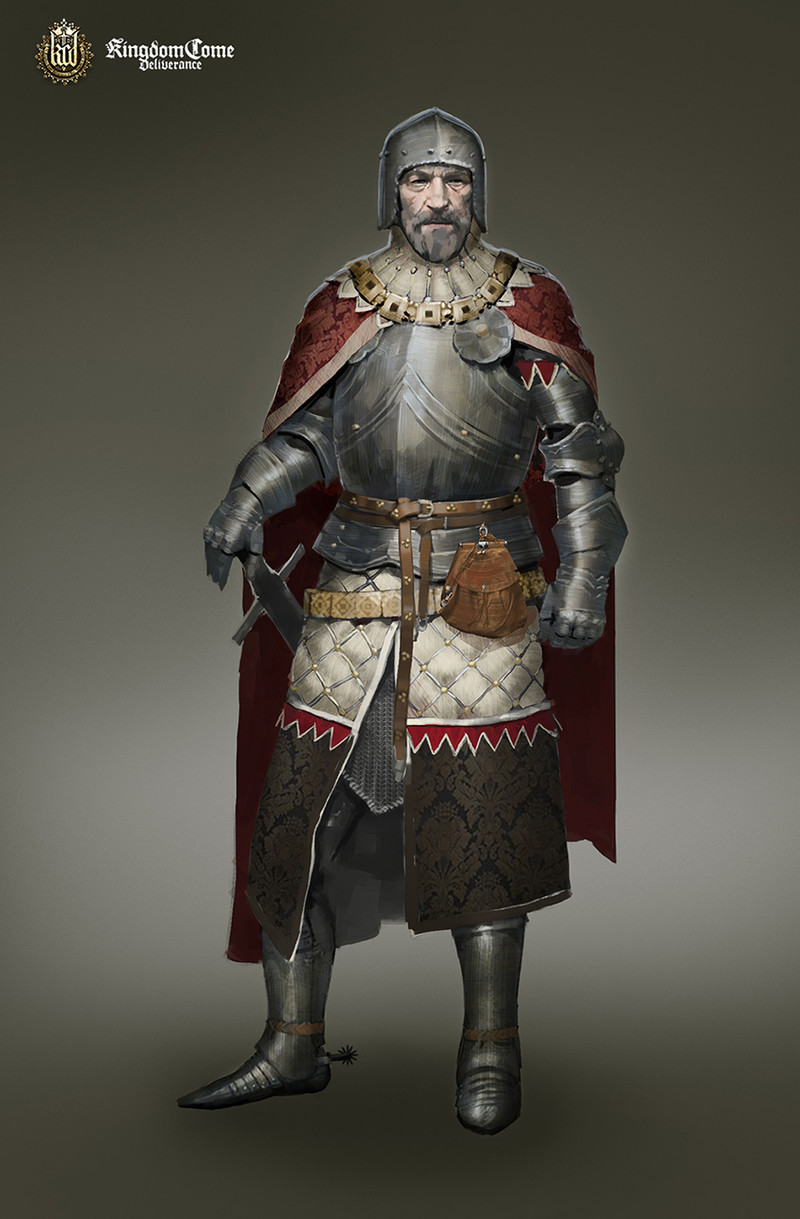
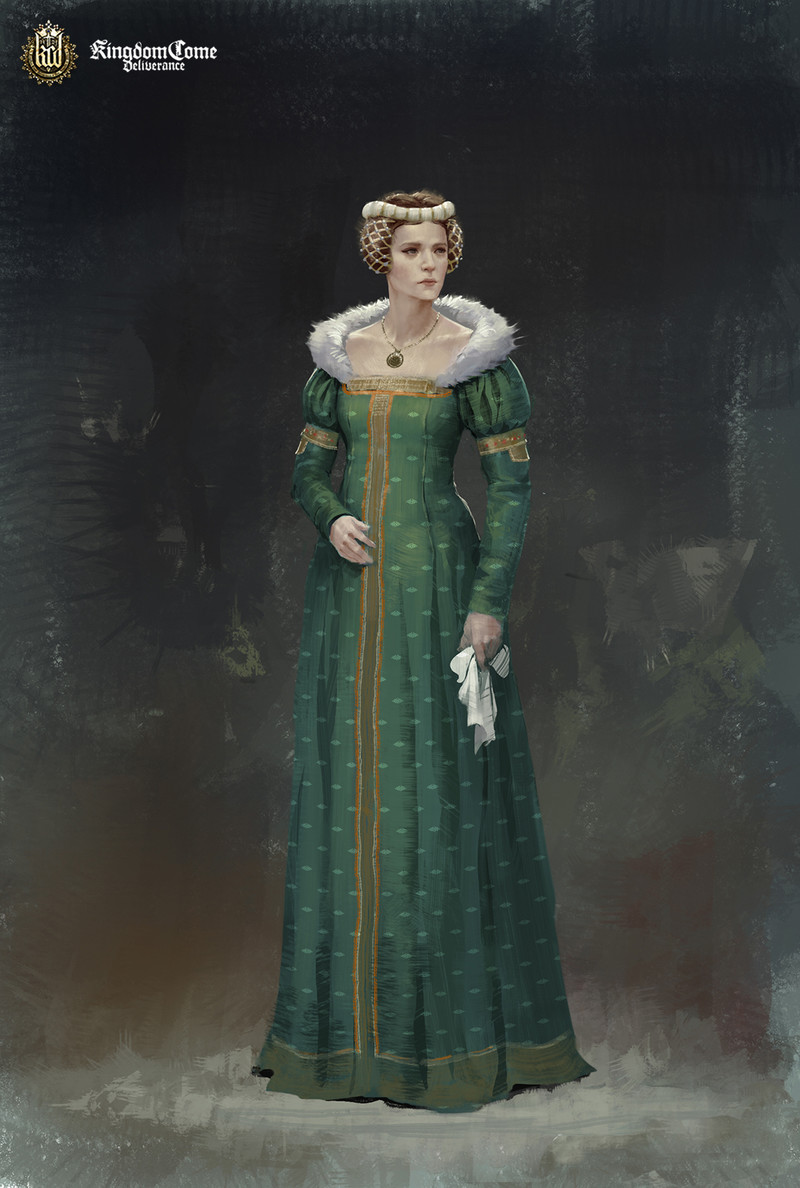
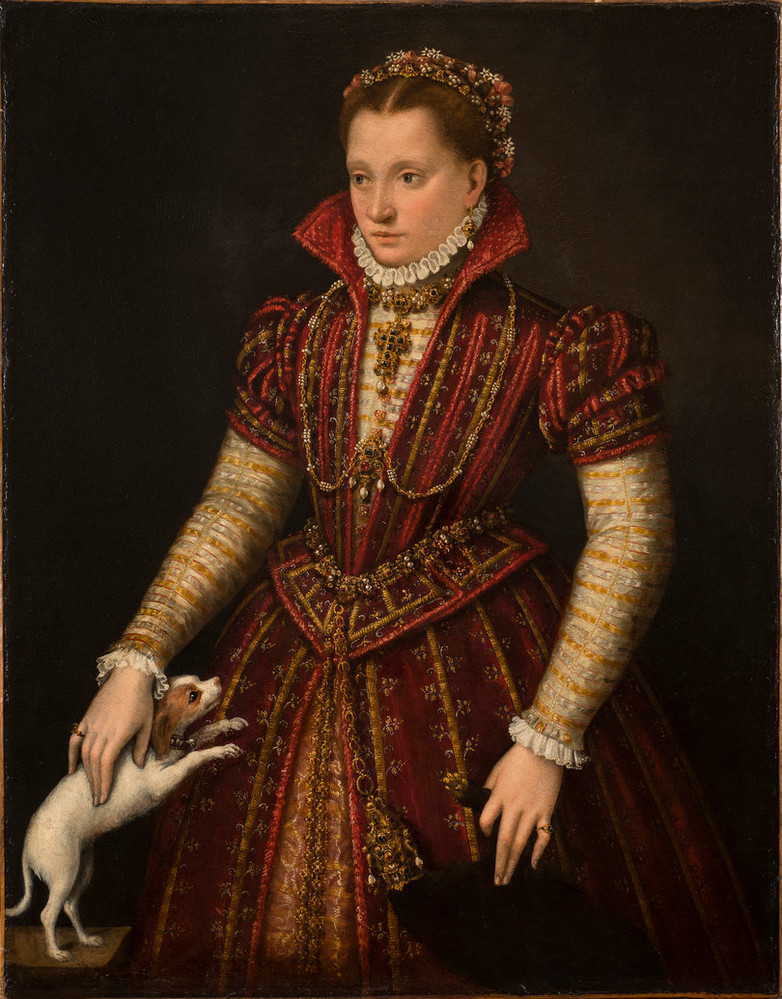
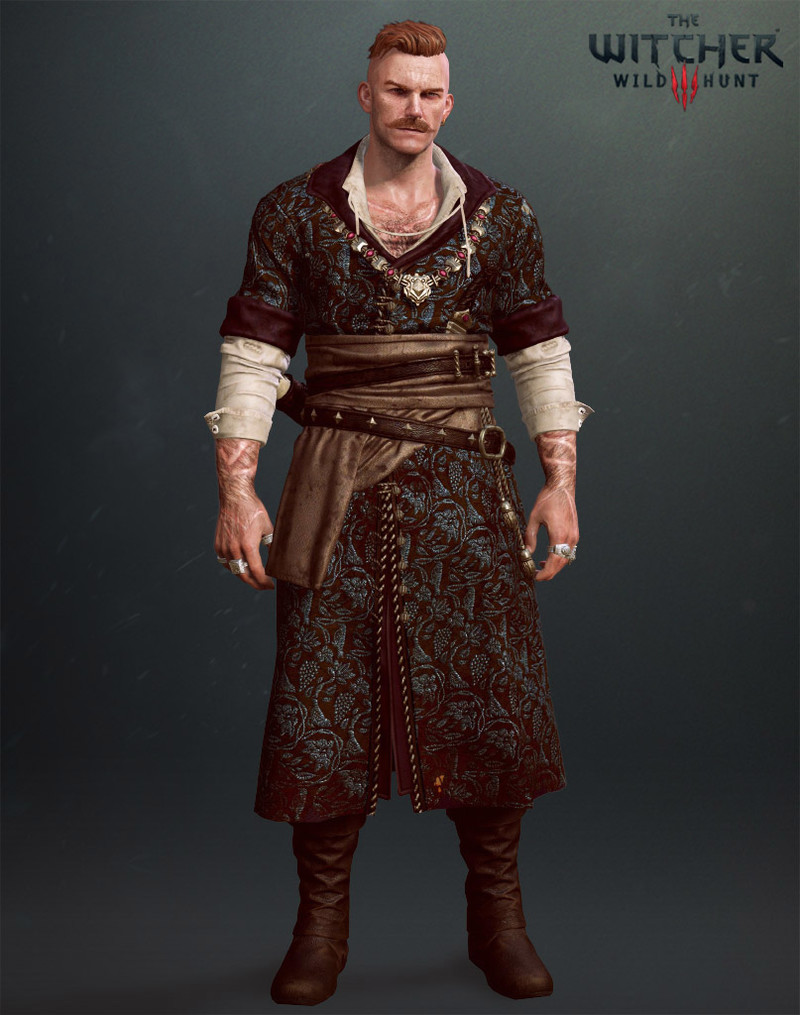
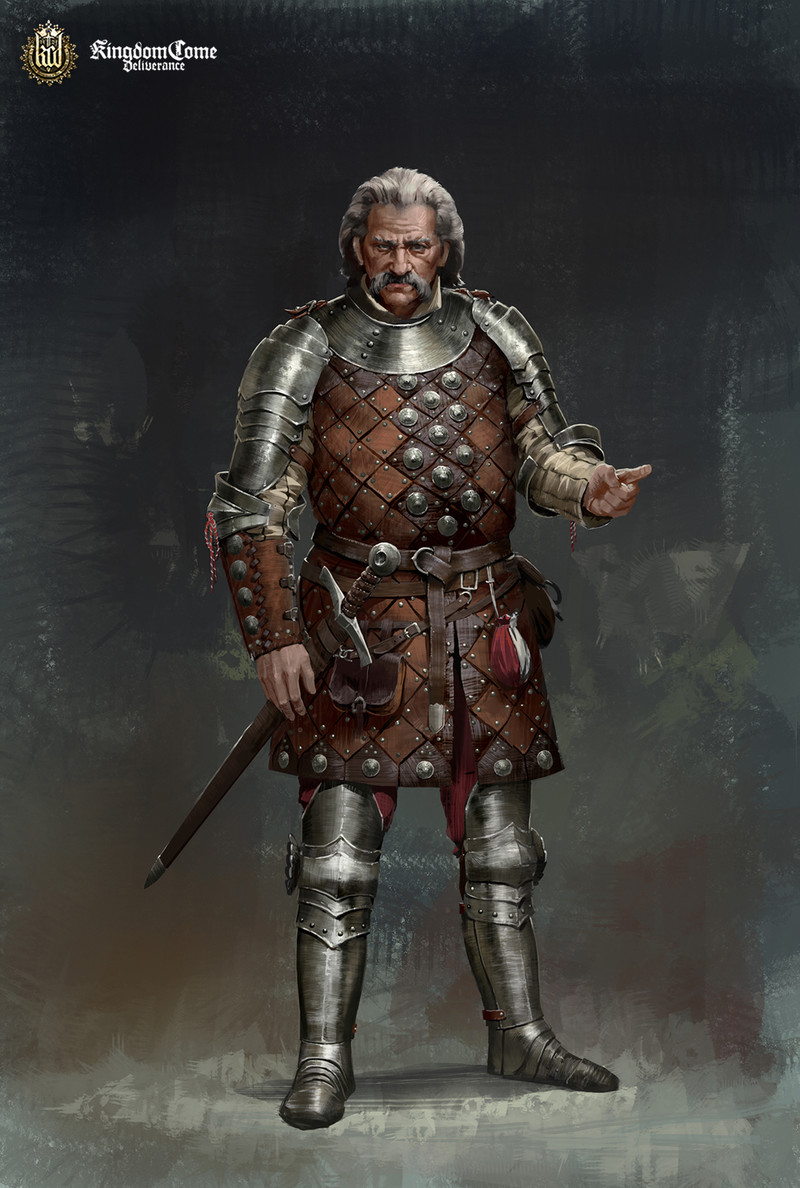
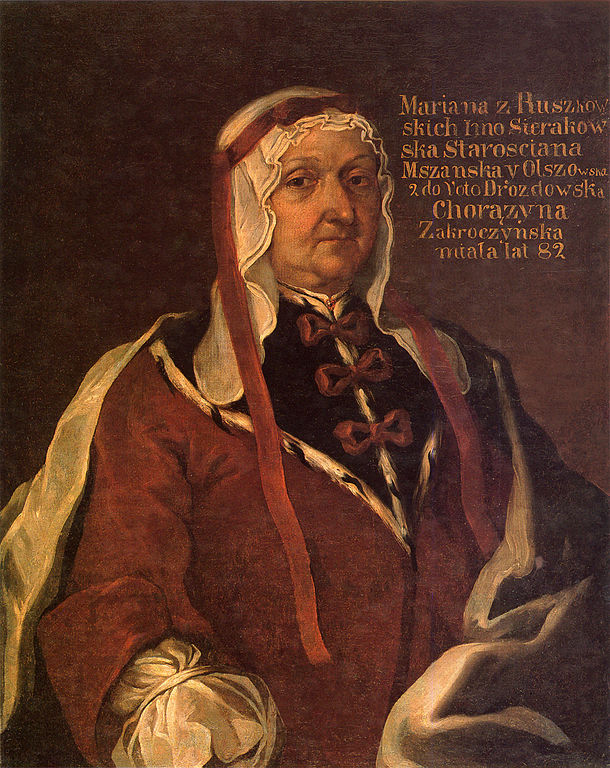
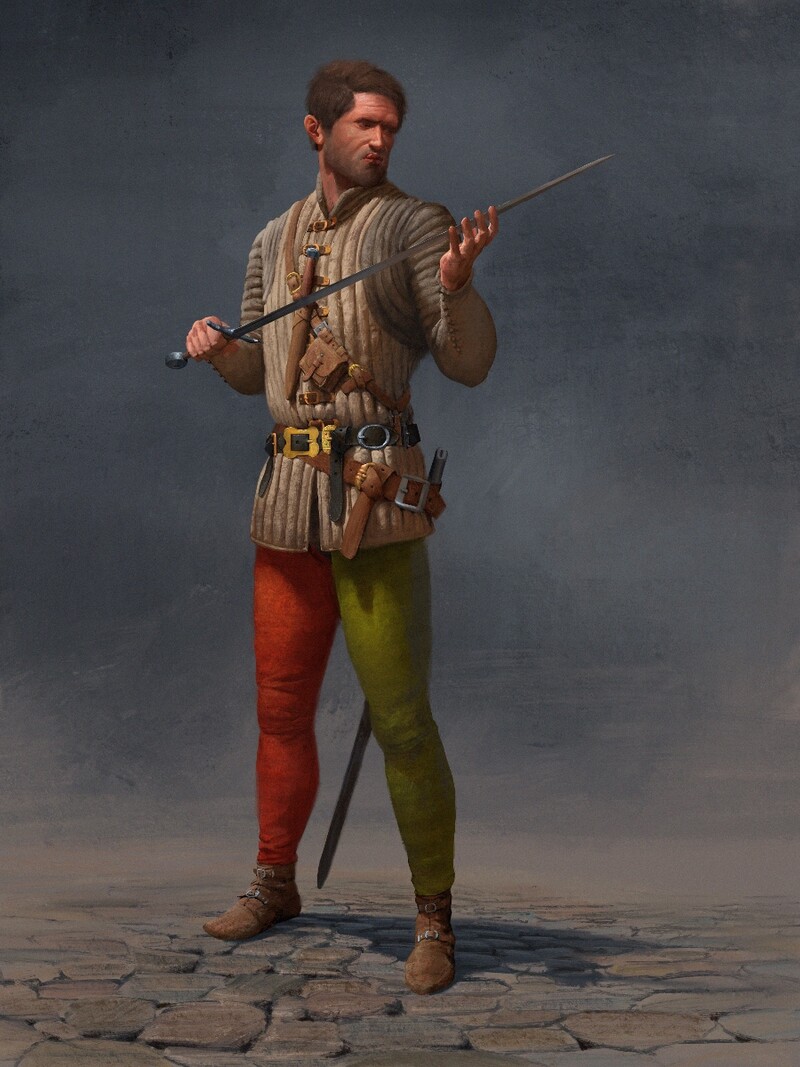
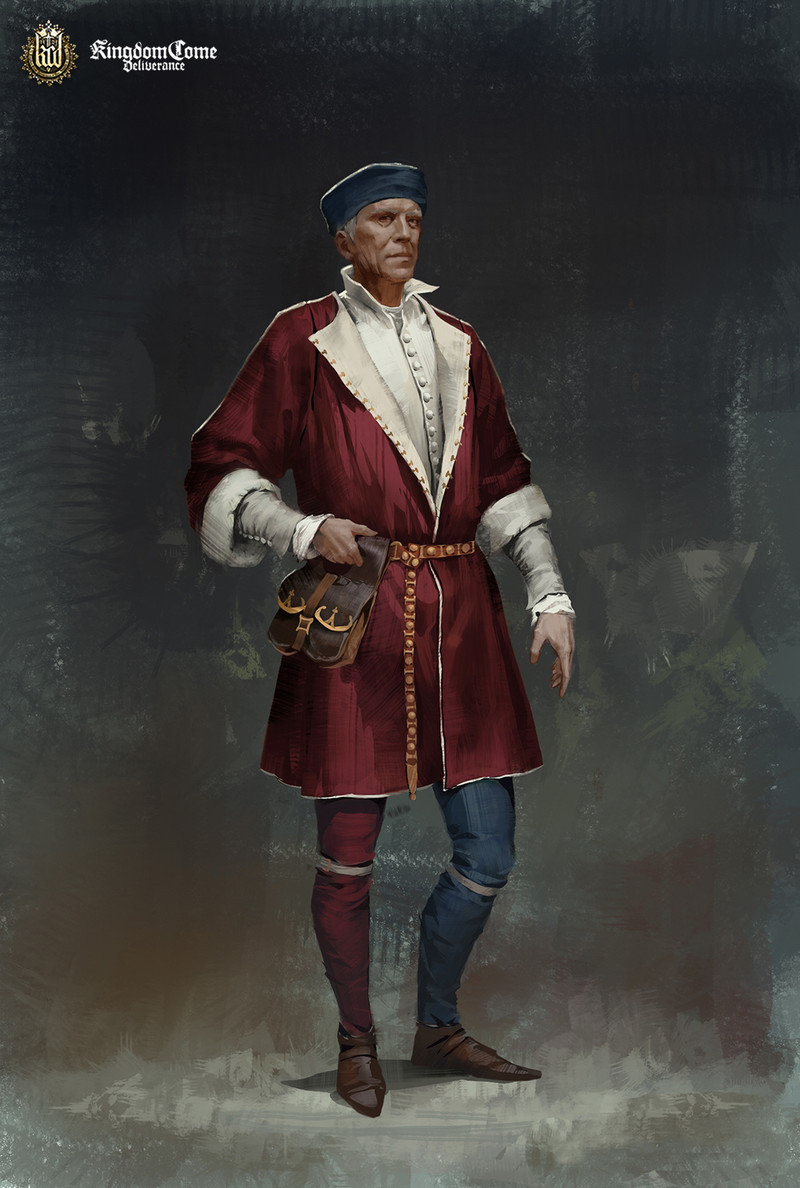

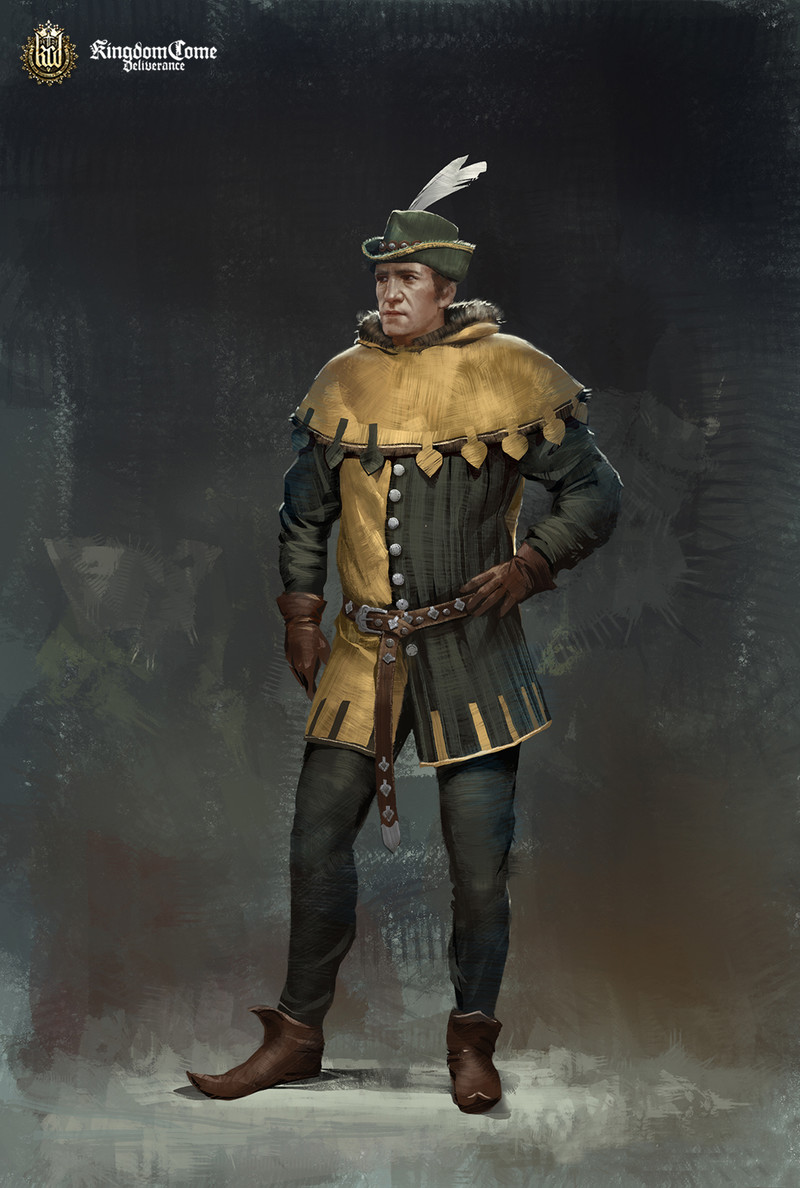
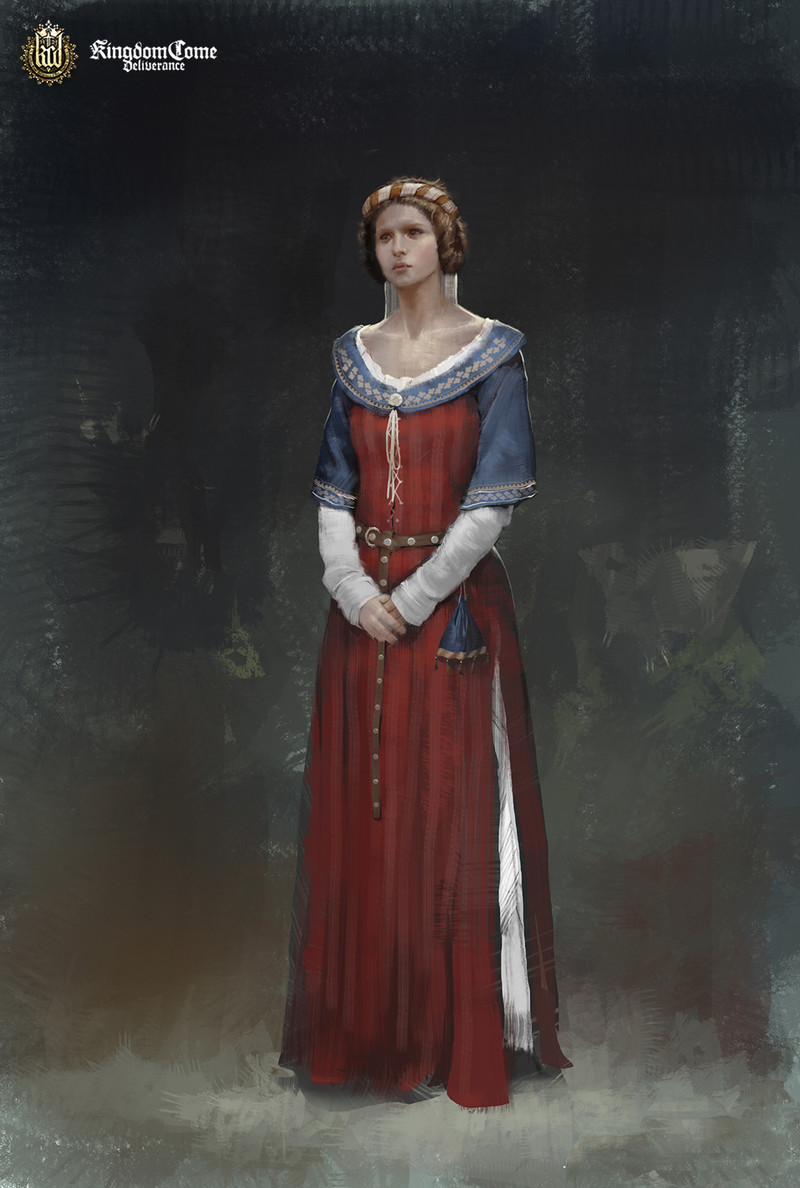
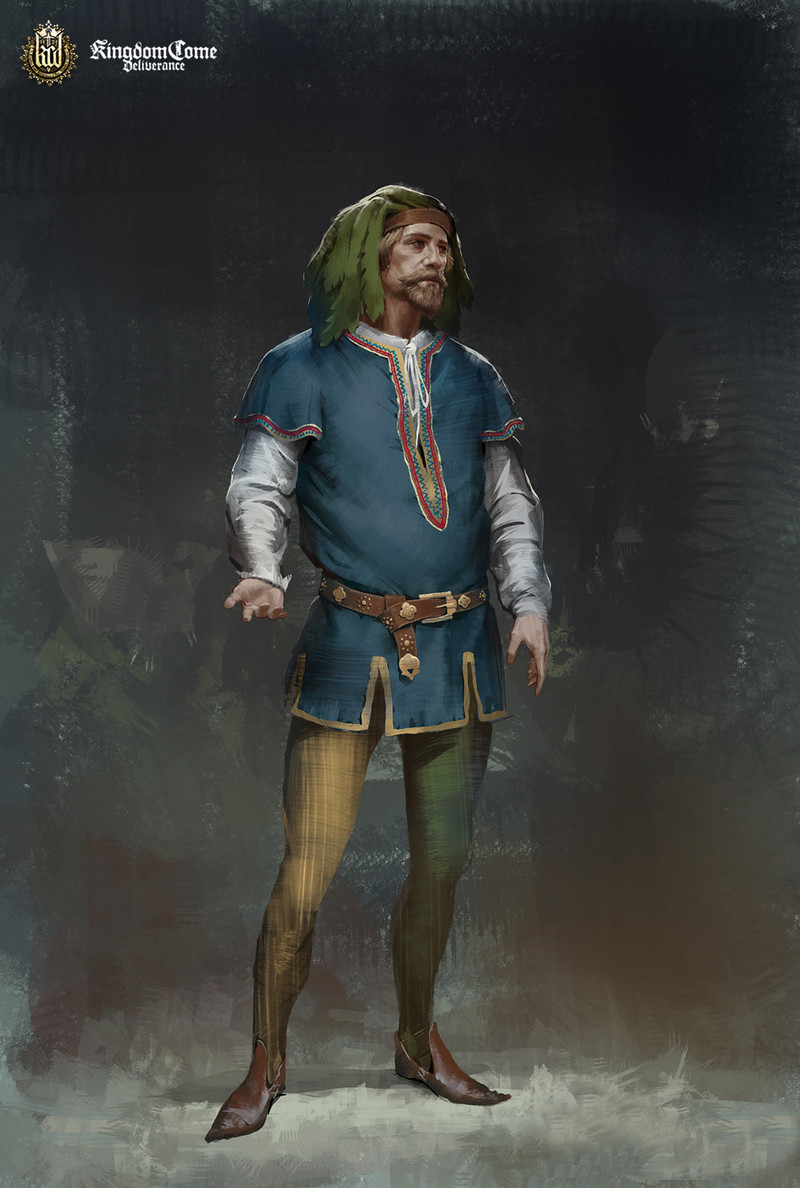
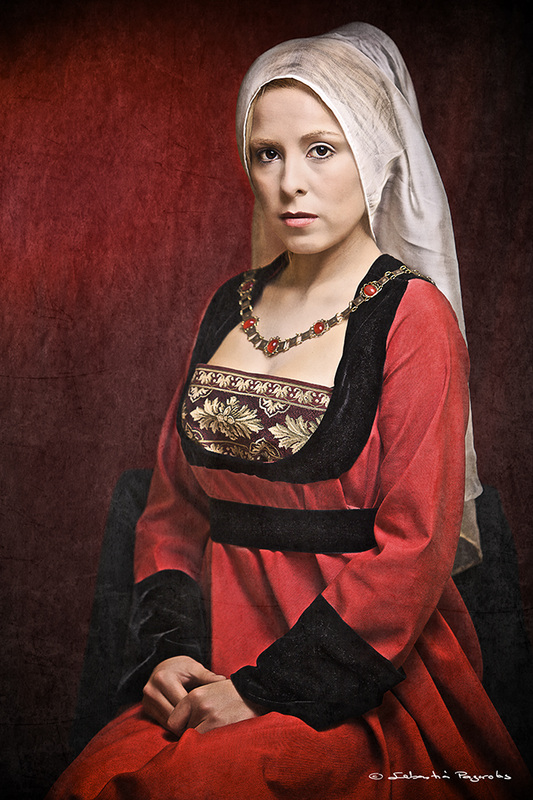
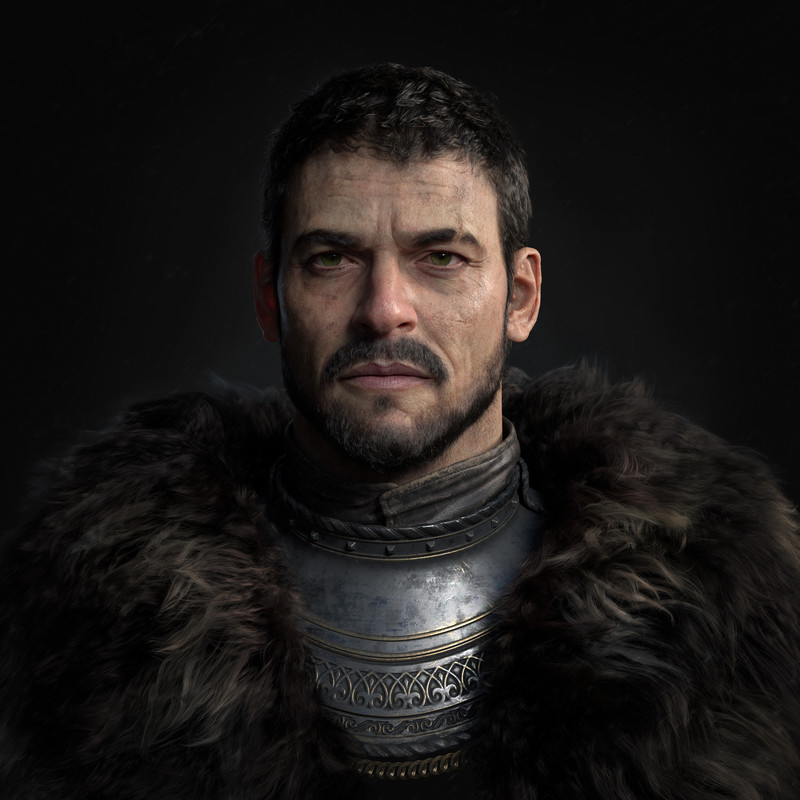

![]() by Lotrisia » Sun May 16, 2021 1:08 pm
by Lotrisia » Sun May 16, 2021 1:08 pm
House of WassenburgStärke in Stahl und Stein
Duke Ulbrecht von Wassenburg (Born 1151 A.A, Duke of Wassenburg, Count of Muntrecht)
Lady Anika von Wassenburg (Born 1176 A.A, Head of Muntrecht Royal Stables, Daughter of Ulbrecht)
Sire Anton von Wassenburg (Born 1177 A.A, Heir to Duchy of Wassenburg and Country of Muntrecht, Son of Ulbrecht)
Sire Viktor von Wassenburg (Born 1179 A.A, Son of Ulbrecht)
Lord Paulus von Wassenburg (Born 1155 A.A, Commander of Todesreiters, Brother of Ulbrecht)
House History:
The House of Wassenburg is one of the oldest in the Empire, and remains one of the most powerful electorates despite a decline in its influence as of late. Having served extensively in the initial wars that founded the Empire, the House of Wassenburg became renowned for its martial prowess, a characteristic it has cultivated extensively, especially through its historically close ties with Muntrecht, a city well-known for its trade in high-quality warhorses. It retains an extensive retinue, large for an electorate, though still outsized by any coalition armies, including a contingent of elite riders, typically commanded by the sibling or cousin of its leading Duke, known and feared as the Todesreiters, the Death Riders. The House of Wassenburg is well-off from trade with other electorates and kingdoms further north, and is thus able to support its large army with relative ease. This army is deemed necessary, too, as the House of Wassenburg serve as the wardens of the Empire’s east and northern flanks, protecting the Empire from invasion, through use of mercenary retainers, high-quality cavalry, well-drilled foot sergeants and quality yeoman archers. The House of Wassenburg thus stands as a well-respected martial arm of the Empire, albeit one with few real friends among the more mercurial trading Houses of the Empire’s centre, with its men and women serving as respected military advisors and leaders across the Empire and occasionally beyond. A regular feature of the Empire's politics, the House of Wassenburg has been at its head many times, but has as of recently mellowed in its ambitions, driven by a move towards peaceful trade following the full emancipation of Wassenburg's peasantry some 200 years ago. However, the rise of the energetic and driven Duke Ulbrecht to its head has propelled it once more into the fields of Imperial politics, and the house has once more begun sharpening its blades in preparation for the approaching Interregnum. Blood will be shed before Wassenburg's ambitions are dried up.
Duke Ulbrecht of Wassenburg
Duke Ulbrecht wasn’t always the severe, serious man he is today. In his youth, he was a man well-known for his powerful emotions and joviality, buoyed up by what seemed like a brilliant future and a loving wife. He became renowned, unsurprisingly for the heir to House Wassenburg, for his martial prowess, winning numerous decisive victories in large-scale skirmishes with the Northern Kingdoms. Already Count of Muntrecht through his marriage to Marissa, daughter of the former Count, few were surprised to his accession to the throne of Wassenburg following his father’s death. He soon fathered three children with Marissa. Anika, naturally talented in the handling of horses and a notable botanist. Anton, a jovial extrovert who took after his father in leading Wassenburg forces, filling his father with pride. His youngest, Viktor, was mute, but quickly became his father’s pride and joy, a savant with a blade and a close friend to those who warmed to him, communicating with a system of signs devised by his family. This happy visage, seemingly the peak of his life, was, however, marred by tragedy, with Marissa dying from scarlet fever in 1191 A.A. In mourning for months thereafter, Ulbrecht emerged as a wholly different man. While still a loving an caring father, and a devoted friend, he became crueller and more serious with those he was not close to, caring little for the lives of those he deemed as hangers-on and liars. His famed joviality became a dry, deadpanned sense of humour, with Ulbrecht himself often only laughing internally. The Duke is an intensely ambitious man, but keeps his plans close to his chest, never revealing what he truly desires to the outside world and going to great pains to hide his plans. While he desires the prestige and power conferred by the Imperial Throne, Ulbrecht has set his sights far further afield. Using Wassenburg's prestige as a Great House, and his own impressive holdings, Ulbrecht aims to quietly generate a vast campaign of conquest by the Empire's massive collective military, on a scale not seen since the years of its founding. Standing in his way is the complex and intricate politics of the Imperial Court, something he has increasingly come to despise. The Duke will stop at nothing to see his far-reaching plans realised, and is willing to burn much of the Empire to the ground to achieve them.
Appearance
Tall, with black hair and a close-cropped beard, Duke Ulbrecht presents an image of a man worn rough by the passage of time. With a thin, almost gaunt face, piercing blue eyes, and a nose broken and healed many time over, he seems every inch the fighting man, a fact his well-muscled, but heavily scarred body attests to. In court he dresses in shades of black, as a symbol of his mourning for his wife, Marissa. In battle, resplendent in an ornate set of black plate at the head of his army, he goes from a serious, haunted man to a leader in his element, his eyes afire as he strides across bodies and blood to reach his goal. In battle, the man becomes nearly divine.
Traits:
Serious: While possessing a dry, witty sense of humour, Ulbrecht von Wassenburg has little time for those things he sees as being trivial flattering.
Chivalric: While Ulbrecht cares little for flattery and niceties, he places great stock by a system of formal respect instilled in him by his father as a child. Should Ulbrecht give a promise, he keeps it, regardless of the consequences for doing so. This can create great bonds, but leaves him exposed on occasion.
Master swordsman: Trained from childhood as a warrior, Ulbrecht stands as one of the best swordsmen in the Empire, thanks in no small part to the massive amount of money his father spent on tutors for him. When on a battlefield, approach him with caution, if at all.
Stubborn: Perhaps one of Ulbrecht’s more grating traits is his stubbornness. While his unwillingness to budge can be an asset to him, more often than not it runs him into trouble at the same time.
Intensely loyal: Ulbrecht forms deep relationships with friends and family, and is willing to move heaven and earth to help those he cares for. This stands as one of his finest traits, and has allowed him to form unusually powerful friendships.
Callous: While caring for his friends and those under his command, Ulbrecht cares little for the lives not numbered amongst those people. He is more than willing to kill or torment those he sees as standing between him and his goals, and is completely unforgiving of acts he sees as fraud or treachery.
Tactically experienced: Ulbrecht has years of command over one of the Empire’s finest fighting forces, and as such has a wealth of knowledge and intuition to draw on in battles. As such, he remains one of the Empire’s finest leaders, on the battlefield, despite his political deficiencies.
Possession of a high-quality army: Ulbrecht’s standing army is both relatively large and of a high standard of quality, making it one of the best forces present in the Empire. House of Wassenburg martial traditions have ensured a culture of extensive training, drilling, and expenditure on arms and armour that have stood its army in good stead, with money from trade and horses from Muntrecht affording it a large contingent of plate-armoured heavy shock cavalry, while lifetimes of training give it a pool of veteran yeoman archers to, if you will excuse the pun, draw upon. It also possesses a strong contingent of heavy infantry as its core, while retaining a force of light cavalry and infantry as a well-oiled mobile reserve. Ulbrecht’s army, while perhaps not as large as some of its Western counterparts, is a force to be reckoned with, and stands as one of his greatest assets.
Lacks political finesse: Ulbrecht is about as subtle as a poleaxe through the jaw, and is ill-suited to the mercurial and ever-changing world of Imperial politics. This has left him with a lasting dislike of politics in general, and, as a trait, has earned him few friends and many enemies.
Holdings:
Brief
Ulbrecht holds a total of 2 cities, one relatively large and the other relatively small, which come with 3 fortifications as their holdings, namely 2 forts and one large castle. The fourth fortification, Rook’s Nest, is a castle customarily held by the House of Wassenburg to protect the Empire against incursions from their northeast border through the Velheim Valley whose mouth it blockades.
Telborscht Castle
Description:
Built on a large hill in the rolling rocky plains of Western Wassenburg, Telborscht Castle is a testimony to the distrust between elector states. Serving purely to protect Wassenburg from aggression by its neighbours, Telborscht Castle is large, with an extensive bailey and an impressive keep capable of housing as sustaining a large army for over three years without resupply. With a lookout point over the road of Wassenburg nearby, tall, thick walls, and an impressive position, Telborscht Castle serves as a visible reminder to a traveller of the might of Wassenburg’s army. The intimidating complex of walls has in recent years been augmented by culverins, small cannons recently refined by Wassenburg metalworkers for use against hostile siege equipment and infantry. A permanent force of archers and foot sergeants stands watch on the castle's walls, ensuring that Wassenburg's western flank is securely protected. That said, Telborscht Castle is regarded as a rather cushy posting by the Wassenburg army, and Ulbrecht has taken some rather stringent measures to ensure his forces there don't get sloppy. It has somewhat recently become a construction ground, with an extensive expansion of defences in the works at considerable expense.
History:
Built by the 3rd Duke of Wassenburg during a period of extreme tensions amongst Imperial elector states, Telborscht today serves as a defensive barrier between Wassenburg and the rest of the Empire. The castle was then one of the largest built in the Empire, but has since been shadowed by a number of new constructions, often funded by wealthy merchant families. Duke Ulbrecht has recently made plans to expand Telborscht Castle in preparation for a possible war between Houses, but these plans have only begun work in the past two years, and it will be a while yet before the sweeping changes being made are complete. The Duke and his retinue customarily remain in Telborscht at least two months of ever year, to meet with visitors and remind themselves of the importance of their duty to the Empire.
Retorf Keep
Description:
Built in the centre of wide rolling plains, Retorf Keep is ironically named, being built more of wood than the stone usually found in true keeps. It serves as the centre of Muntrecht’s well-renowned light cavalry divisions, and so is more stable than fortification. However, it serves well as a stumbling block to an approaching army, with sizeable earthworks and a small garrison town on its interior. It’s also a rather pleasant place to stay for vacations.
History:
Built 100 years prior as a barrier against raiding parties from the coast encroaching further inland, Retorf Keep, its purpose now defunct, serves as a gateway of sorts into the hinterland of the Country of Muntrecht, and as a wintering ground for the light cavalry for which Muntrecht’s army is so famous.
Treva’s Watch
Description:
Small in stature and by these days largely defunct, Treva’s watch is manned more out of a sense of tradition than any real military necessity. Serving primarily as an outpost station to warn the cities of an encroaching army, Treva’s Watch is diminutive by modern standards, and possesses a small garrison, composed largely of outriders and light infantry, which constantly patrols the surrounding region - the watch which gives the small fort its name. It consists of a single, simple fort built on the top of a hill, with short stone walls and a central watchtower, emblazoned with the words “Ever Vigilant” on its gate.
History:
A small, ancient fortress built in the earliest days of the House of Wassenburg, Treva’s Watch is named after the second Duke of Wassenburg, and served as an advanced warning outpost in the case of an attack by Muntrecht. Relations between Muntrecht and Wassenburg, now warm thanks to their shared ruler, have since made the fort unnecessary, leaving it to operate simply as another means of warning against a large-scale incursion.
Rook's Nest
Description:
Built into the steep sides of the Velheim Valley, the Rook's Nest stands as an unusually tall castle, from which it gains its name. While not quite a match for the sheer size of Telborscht Castle, the Rook's Nest still houses a sizeable permanent garrison, who stand on guard permanently on its tall, thick walls. Towering over the valley it straddles, Rook's Nest is nestled into the side of the mountain. Its tallest tower, The Nest, climbs the side of the mountain range, serving as a watchtower to sight an approaching force. The castle maintains a permanent force of scouts in the valley ahead of it, which remains the only traversable pass in the entire range, and in addition to this maintains constant foot patrols of neighbouring valleys and small passes. It has proven itself in dozens of battles and as many full sieges, and serves as the sharpened jewel in Wassenburg's iron crown. As such, it holds itself to demanding standards of quality, with laziness and a poor service record severely punished. Falling asleep on guard duty earns one the punishment of having to climb the nearby mountain peak to offer a coin to a statue, built in the honour of the first Duke of Wassenburg. Only the best of Wassenburg's troops serve here.
History:
The Rook's Nest is a castle as old as the Empire itself, constructed as a permanent barrier to incursions from the Northern Kingdoms. Initially given the derisive nickname "Wassenburg's Folly" by Imperial Houses, Rook's Nest quickly came to prove its usefulness, holding back a surprise invasion by what was then known as the Kingdom of Nortenskf until an army could be raised to beat them back. The battle that followed, a crushing victory for Wassenburg's forces, was thanks in no small part to the Nortenskf army exhausting itself against the walls of Rook's Nest. Following this, the names stopped, and Rook's Nest became a central part of House Wassenburg's power in the Empire. It has since stood the test of many battles, and has been lost and retaken twice, though on both occasions it served its intended role of allowing a Wassenburg army to be raised in time. In the past few years, the castle has become overtaken by a flurry of major improvements, including extensive strengthening and repairs of walls, a massive enlargement of the castle's cavernous food storage, and the addition of a third layer of walls, along with the creation of ports for the new culverins, recently shipped in from the workshops of Wassenburg. This, of course, is driven by the gradual mobilisation of the North, as armies begin to train and castles ready themselves for an onslaught of blood and fear. Wassenburg intends to be ready.
City of Wassenburg
Description:
The City of Wassenburg, grown from a small forestry town into a full-fledged city, is built around its fortifications. A tempting target both due to its thriving trade in lumber, iron and armament, and its key positioning in protecting against an invasion by the North, Wassenburg is built on a low rise and protected by a thick set of walls, as well as an impressive keep, which towers over the city it forms the centre of. Any real commerce in the city occurs inside the walls, with small slums on the outside being of no real importance. Its current official population stands at around 37 000 people, though decades have passed since the last census was taken by the city and the population is doubtless larger than this. Regardless of its population, Wassenburg sits squarely in the middle of roster of cities in size, being neither massive nor small by most standards. This size is something of a recent development, with the city's population having doubled in the past 100 years due to an economic boom, powered by the increasingly vibrant mercantile economy of the Northeastern Empire and its traditions of an emancipated, if until recently impoverished, populace.
History:
An ancient city, Wassenburg predates the Empire, and was originally an independent kingdom. These days, while not massive, it is still one of the larger cities in the Empire, and certainly the largest in its region, covering its entire hill and some besides. After its conquest by the Empire and gifting as a Duchy to Ulbrecht’s ancestors, Wassenburg came to form an integral part of the Empire’s defences, and became well-known for its martial culture and the quality of its armaments. In modern times, Wassenburg is a supplier of high-quality lumber, and is most well-known for the quality of the armaments produced by its blacksmiths, especially its intricate and beautiful sets of plate armour. Many of these sets now adorn the throne room of Duke Ulbrecht, serving as a palpable reminder of the city’s martial heritage, and violent past. Wassenburg's lack of a feudal system, with its lower classes largely retaining economic freedom despite relative poverty, while at first glance contradictory with its martial traditions, is one of its greatest assets in the modern day, affording it a pool of well-motivated professional soldiers and an unusually supportive populace.
Muntrecht:
Description:
Built in the centre of gently rolling plains, on the tallest hill in the area, Muntrecht is at first a distinctly unimpressive city, with low stone wall and a central keep with a wooden hall and oddly wide courtyard. Indeed, many consider the city to be dominated by Wassenburg, its larger neighbour. However, its low looks disguise the city’s proudest asset, its extensive and high-quality horse breeding, something which helps supply much of the Empire with its warhorses. These horses form a central part of Muntrecht’s economy, bringing large quantities of wealth and widespread respect to the city. It is notably low-density, with detached houses and roads wide enough to ride carts through with little difficulty, but is still smaller than its northern counterpart by a ways. Muntrecht, at 6000 people, is small even by provincial standards, with the majority of the regions population in rural villages further afield.
History:
Originally serving as the political centre of the tribes of modern-day Muntrecht, Muntrecht proper now serves as the economic capital of the county. The city spent many decades clashing with Wassenburg before the eventual alliance between them was signed. While initially fraught, the alliance between the two has warmed in more recent years, fed by Muntrecht’s renewed prosperity trading with Wassenburg, culminating with Ulbrecht’d marriage to Marissa von Muntrecht. Now ruled by the House of Wassenburg, Muntrecht continues to flourish, and appears to harbour little ambitions of independence, content in prosperity. It has retained the clan system that came to form the city in the first place, and feuds between prominent clan members are a staple of municipal politics. This has led to no small amount of problems and bloodshed, something that has caused the city's Steward, Duke Ulbrecht's brother-in-law, his fair share of headaches.

![]() by The Tsunterlands » Sun May 16, 2021 1:15 pm
by The Tsunterlands » Sun May 16, 2021 1:15 pm

![]() by Utceforp » Mon May 17, 2021 7:30 am
by Utceforp » Mon May 17, 2021 7:30 am

![]() by Herador » Mon May 17, 2021 11:40 am
by Herador » Mon May 17, 2021 11:40 am

![]() by Great Confederacy of Commonwealth States » Mon May 17, 2021 12:54 pm
by Great Confederacy of Commonwealth States » Mon May 17, 2021 12:54 pm
Herador wrote:My app is coming along pretty well, I'm pausing for a few to read up on medieval banking. I'm thinking the Bank of Whitecliff will have five distinct sections. The banking branch handles your standard banking, keep money safe in a secure location for a small fee. The Investment branch allows people to invest with the bank who then uses those investments to finance trade with a proposed percentage return. The Accounting branch offers trained accountants that can be sent out of a Noble or wealthy commoners estate and provide a range of services (bookkeeping, auditing, financial planning, etc.). Transfers branch offers thr protective services of Whitecliff's finest when you need to ensure the safe and prompt transfer of funds from one location to another. Last one would be Insurance, which offers to cover portions of a loss on a place, venture, item, etc. (the percent is negotiated) for a negotiated cut of the profits or a fee.
I just gotta figure out the nuts and bolts of making it work in a medieval setting.

![]() by Herador » Mon May 17, 2021 1:27 pm
by Herador » Mon May 17, 2021 1:27 pm
Great Confederacy of Commonwealth States wrote:Herador wrote:My app is coming along pretty well, I'm pausing for a few to read up on medieval banking. I'm thinking the Bank of Whitecliff will have five distinct sections. The banking branch handles your standard banking, keep money safe in a secure location for a small fee. The Investment branch allows people to invest with the bank who then uses those investments to finance trade with a proposed percentage return. The Accounting branch offers trained accountants that can be sent out of a Noble or wealthy commoners estate and provide a range of services (bookkeeping, auditing, financial planning, etc.). Transfers branch offers thr protective services of Whitecliff's finest when you need to ensure the safe and prompt transfer of funds from one location to another. Last one would be Insurance, which offers to cover portions of a loss on a place, venture, item, etc. (the percent is negotiated) for a negotiated cut of the profits or a fee.
I just gotta figure out the nuts and bolts of making it work in a medieval setting.
If you want to brainstorm, I actually have a bit of knowledge about the development of civil (property) law as it relates to the middle ages. That might be very useful.

![]() by Novum Teutonicum » Mon May 17, 2021 6:53 pm
by Novum Teutonicum » Mon May 17, 2021 6:53 pm

![]() by Miekzhemy » Tue May 18, 2021 1:20 am
by Miekzhemy » Tue May 18, 2021 1:20 am

![]() by Lotrisia » Tue May 18, 2021 2:35 am
by Lotrisia » Tue May 18, 2021 2:35 am
Miekzhemy wrote:On second thought, screw it I'll put together a house as well. Currently thinking of a more militant house near the northern border priding itself on its military.
snip
Advertisement
Return to Portal to the Multiverse
Users browsing this forum: Hypron, New Rnclave, Zarkenis Ultima, Zei-Aeiytenia
Advertisement